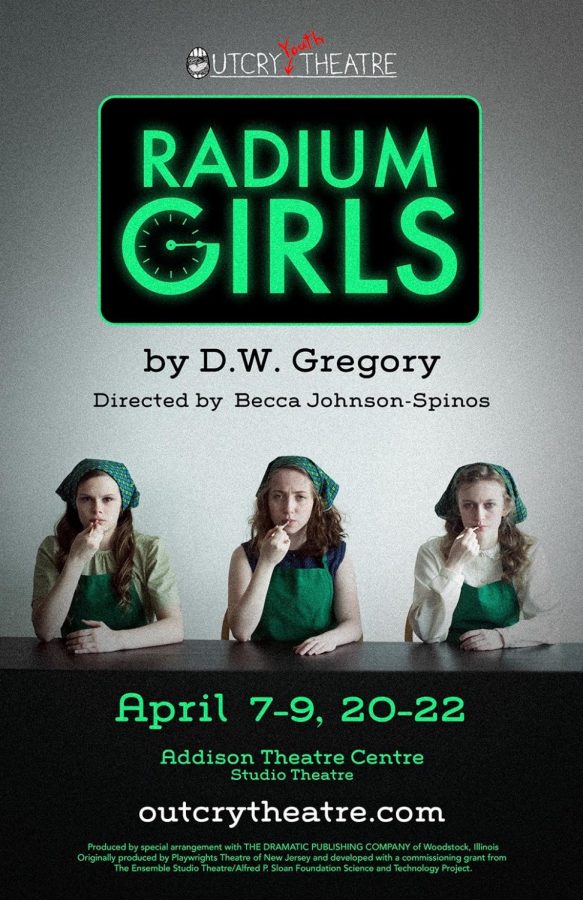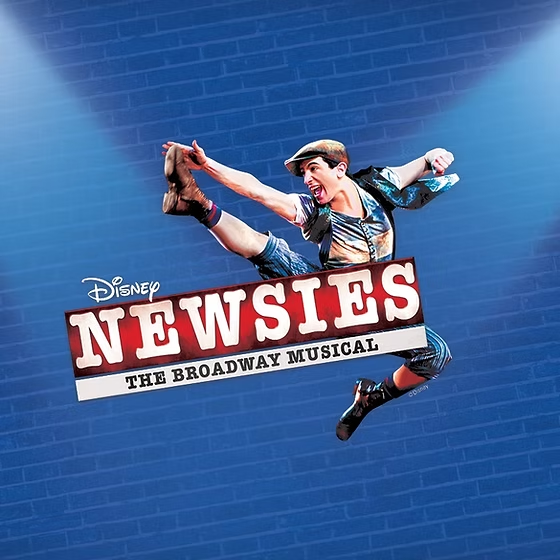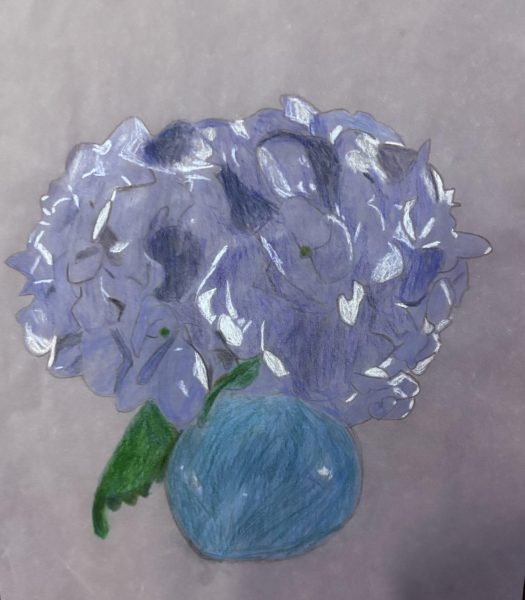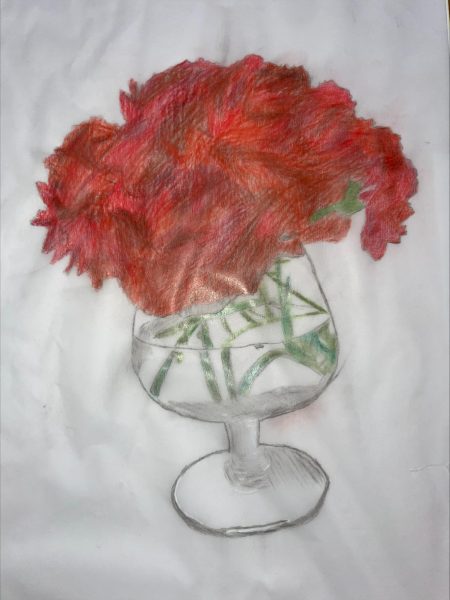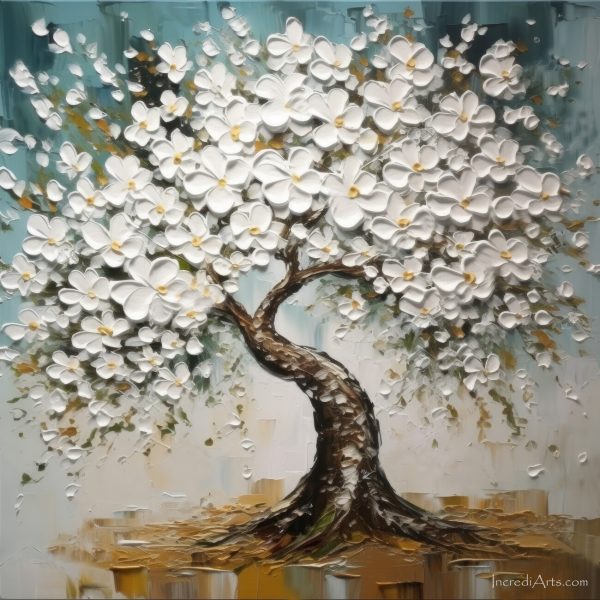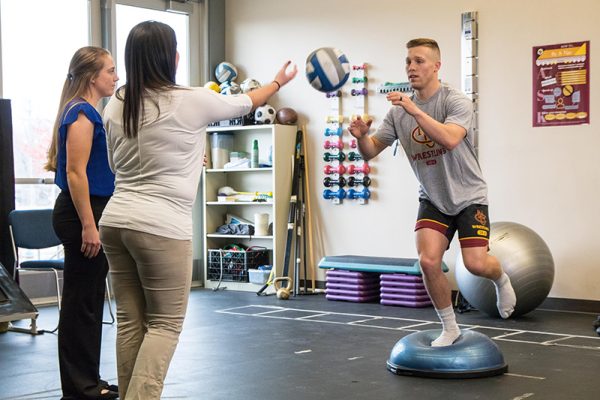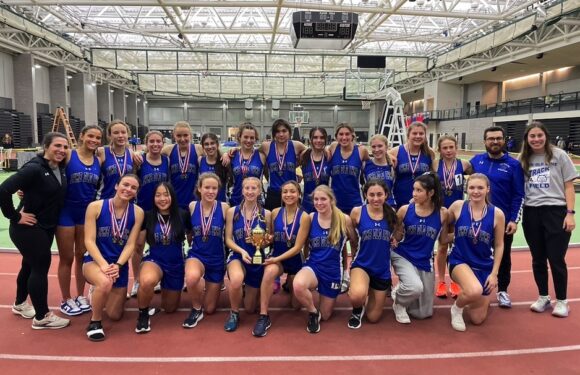Radium Girls: Behind the Curtain
The lights in the auditorium begin to dim. The audience’s hushed whispers slowly quiet to silence as the curtain glides open. The lights come up on the stage to reveal a completely different world from Lyme-Old-Lyme High School.
Of course, the audience knows that what’s really happening onstage is not real life. Theater induces a phenomenon called suspension of disbelief, which means that although the audience members know that the events of the play are not real, they allow themselves to believe the story they are being told. But what else makes a production’s story-telling believable?
I interviewed Natalie Golden, who is the stage manager of Lyme-Old-Lyme High School’s fall production of Radium Girls. Radium Girls is set in a factory during the Industrial Revolution where girls are painting the faces of watches. However, the glow-in-the-dark paint has radium in it, and the girls get different forms of cancer and die in their twenties. The show deals with issues of legal compensation and the tragic effects of a lack of knowledge. Much of the show that the audience sees onstage is actually work of people behind the scenes, like Natalie. Natalie has had an abundance of experience in theater, including an ensemble role in Carousel, Ernestina Money in Hello, Dolly!, and Jenny Harmon in Curtains here at the high school. Natalie was also the assistant stage manager her freshman and sophomore year for the fall plays Letters to Sala and Murder in the House of Horrors, and was the stage manager for last year’s production of The Crucible and this year’s show Radium Girls.
I met with Natalie to discuss her theater experiences as well as learn about her responsibilities as stage manager.
Katie Reid: How did you first get involved in theater, and how old were you?
Natalie Golden: I think I was about 9 when I first got involved in theater and it was kind of like a camp over the summer. When I did it, I fell love with it and I did every show I could ever since then. Now I stage manage for that company.
KR: What is your favorite role you’ve ever played? Why?
NG: I think my favorite was Ariel in the Little Mermaid because it’s a character that everyone knows, and everyone knows the show, so it was a cool for me to take a wide-known, traditional role and add my own spin to it. I also really loved singing the songs.
KR: What is the most challenging role you’ve played? What made the role so hard?
NG: Oh, my goodness, okay. Either Ernestina because it was really hard to get as much comedy as I could out of all my lines and dance on tables in my dress because it was so big, or Wendy in Peter Pan because it was a completely new voice part that I had never sung before. It was also so different from my personality and who I am, so it was really difficult for me to be a completely different person onstage.
KR: What’s the best part about being involved in the shows at the high school?
NG: It’s hard to explain unless you’ve been onstage before. For people who have never been onstage, it’s the most unique sensation. I can’t really explain it. It’s just so amazing. And as an after school activity, for the amount of friends you make and the work you put in, the result is amazing. You’ll probably make friends you’ll have for the rest of your life.
KR: As a stage manager, what are your responsibilities to the production?
NG: Basically, my job is to make sure everything and everyone is at the right place at the right time. I’m pretty much in charge of all actions that happen on and off the stage. I have to make sure the cast members are onstage at the right time and the sets are in the right place. It’s just very stressful.
KR: Why do you think it’s important that people learn about the different aspects of theater (being onstage vs. backstage)?
NG: It’s important because people come to watch our shows and they basically see a tenth of the entire production. It’s amazing how many people are involved that you won’t even know, like the people who build the sets and the people in blacks (the stage crew) that are moving sets. And it’s supposed to be like that, which is cool. The audience is only supposed to see the world we create and not all the work that goes on behind it. But I think it’s important to know that there’s so much more than just singing a song and dancing.
KR: Why should people come to see Radium Girls?
NG: Honestly, because people put so much work into it so other people can come and see what they’ve done. It’s important that the actors are able to tell this story to an audience.
Radium Girls is on Friday, November 17th and Saturday, November 18th at 7 pm. Tickets are $8 and sold at the door.

